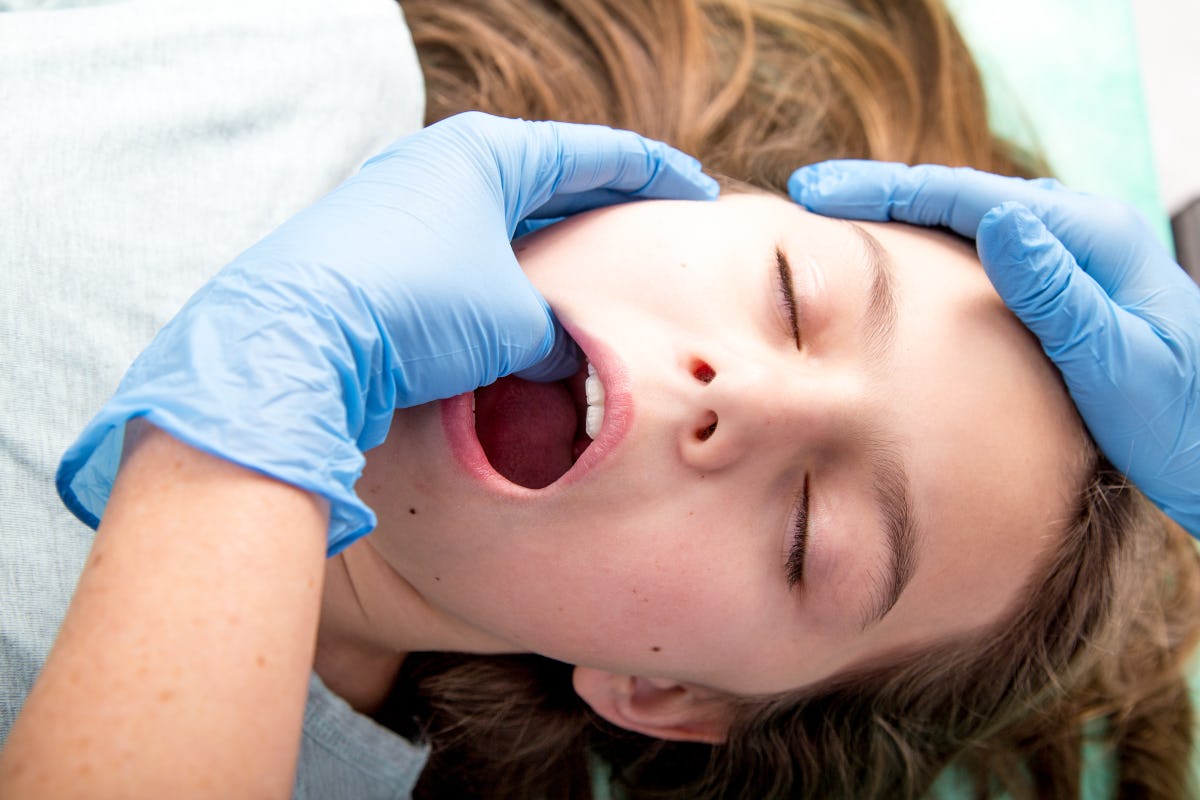
March 21, 2021
Occlusion, Orofacial Pain and Temporomandibular Joint Dysfunction
What functions does the Temporomandibular Joint (TMJ) have?
The TMJ allows us to make essential movements such as chewing, talking, smiling, swallowing and yawning. On average, the TMJ is used 2000 times a day. When this joint hurt, crackles or limits the normal opening of the mouth, we are facing a temporomandibular disorder (TMD).
What are the causes of TMD?
TMD is multifactorial. Stress, anxiety, joint trauma and dental malocclusion contribute to an overload that can lead to pain and inflammation.
The most frequent symptoms / signs of TMD are:
• Pain at the joint site;
• Hearing / feeling clicks when moving the jaw;
• Mouth stuck or blocked;
• Difficulty opening your mouth;
• Headache, which often radiates to the neck and back;
• “Feeling sand” in the joint;
• Tiredness or pain in the chewing muscles.
What is Dental Occlusion?
Dental occlusion refers to the way your teeth relate to each other, an instability or overload in the occlusion can lead to TMD
In occlusion, the most frequent para-function is Bruxism, which can manifest at any age. There are two types of bruxism: eccentric and centric (or commonly “grinding teeth” and “clenching teeth” respectively).
Bruxism, in all its variants, destroys the dental pieces and dental treatments to which the patient was subjected and reduces the quality of life.
What is the role of Cervicofacial Muscles in TMD?
The cervicofacial muscles allow the movement of the TMJ. Its unconscious contraction and relaxation allow us to perform basic day-to-day functions such as talking, chewing, smiling and much more. Many patients with TMD also have problems with the cervical and facial muscles. Excessive contraction of the masticatory muscles causes an overload of the TMJs, causing stress, which can cause the intra-articular disc to shift to an abnormal position.
Stress and anxiety are phenomena that contribute to a great overload, especially in the cervical chains and masticatory muscles.
The constant tightening of the dental pieces causes prolonged tensions in the muscles that end up having a negative effect, causing important muscle injuries that translate, sooner or later, into pain, muscle tiredness, tension headaches, and, sometimes, tinnitus.
At Albufeira Health Institute ® we have Medical Consultations on Occlusion, Orofacial pain and TMD and a Physiotherapist specialized in this area. Meet our team and book an appointment today!